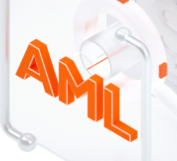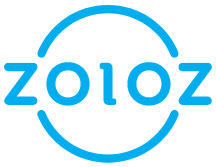The money laundering and terrorism financing problem costs up to $2 trillion globally, up to 5% of worldwide GDP, according to United Nations estimates. As authorities worldwide step up measures to combat this problem. The cost of fraud is high - based on market research in the Asia-Pacific, organizations spent more than 33% of anti-money laundering costs on watchlist-related activities.
Today, AML measures are coordinated globally by international money laundering and terrorist financing watchdog the Financial Action Task Force (FATF), with associate regional bodies such as the Asia-Pacific Group on Money Laundering completing tasks such as compliance assessment, training, research and analysis and engagement with local organizations – financial and non-financial – to inform the public and experts about money laundering issues.
Money laundering is a particularly critical issue in the Asia-Pacific – in 2021, Thompson Reuters Intelligence published analysis noting regulators in the Asia-Pacific had issued fines totaling $5.1 billion for breaches of anti-money laundering laws and related conduct in 2020, a seven-fold increase over the 2019 figure. “A combination of factors is contributing to a sharper focus on AML enforcement in the region,” the analysts, from law firm Shearman & Sterling, state. “The first is the impressive growth experienced by most Asian economies in recent years.
“It should come as no surprise that the rate of financial crime correlates directly to the volume of financial transactions. Like those seeking legitimate profits, criminals are predictably attracted to areas of rapid economic growth.
“Another factor is the growing recognition by regulators in Asia that money laundering tends to be a hallmark of broader misconduct, such as terrorism, drug trafficking, illegal arms dealing and corruption.”
The FATF and regional bodies’ actions – combined with national initiatives – aim to arrest the surge of AML activity in the region.
Late last year, for example, China announced plans to expand its existing AML measures, including widening AML requirements to cover loan companies, asset management subsidiaries of commercial banks, non-banking payment institutions, insurance agents and insurance brokers, and reminding organizations to retain customer identification data and transaction records, as well as reporting large-value and suspicious transactions.
Around the same time, Australia issued its response to FATF criticisms and a statutory review of its AML legislation: lawyers Corrs summarized changes that included a strengthening of ‘correspondent banking relationships,’ or cross-border arrangements between financial institutions, noting these were “notoriously susceptible to money laundering or terrorism financing risks”.
The firm noted that the legislative landscape in Australia was moving more towards compliance and regulation – as opposed to the earlier spirit of partnership and risk minimization – due to the erosion of public trust in the capacity of reporting entities to effectively respond to threats from organized crime and money laundering. “Recent regulatory crackdowns on AML non-compliance in the banking, gaming and remittance sectors underlines the importance of reporting entities updating their controls in line with the latest changes,” Corrs warns.
Singapore has also stepped-up measures to combat money laundering with the Monetary Authority of Singapore late last year announcing plans to introduce a digital platform and regulatory framework for financial institutions (FIs) to share information on customers and transactions to prevent money laundering, terrorism financing and proliferation financing.
“A common challenge that FIs in most jurisdictions face is that they are unable to warn one another about unusual activity in customers’ accounts,” the MAS says. “This gap is frequently exploited by financial criminals to make illicit transactions through a web of entities with accounts in different FIs [financial institutions], such that each FI on its own does not have sufficient information to detect these transactions in a timely manner,” says the MAS.
“The new digital platform, named COSMIC, for “Collaborative Sharing of ML/TF Information & Cases”, will enable FIs to securely share information on customers or transactions, where they cross material risk thresholds. Such information sharing will help FIs identify and disrupt illicit networks, thus helping to safeguard the Singapore financial center.”
However, many organizations continue to rely on traditional AML systems and processes that are ill-equipped to meet the requirements of a dynamic, risk-based approach to the issue. The FATF notes decision-making based on inadequate risk assessments “is sometimes inaccurate and irrelevant, relying heavily on human input and defensive, box-ticking approaches to risk.
“The majority of current risk assessment and risk management efforts are based on a combination of automated but static analyses of a pre-determined set of risk factors, together with human judgement,” the body states. “Legacy systems are updated with new algorithms and manually inputted information, generating matrixes for risk interpretation and action, but these very rarely offer a real time overview of customer transactional or institutional risks.
“Moreover, traditional risk assessment tools, based on spreadsheets (such as Excel) or static reporting platforms, do not allow data to be analyzed at a large scale, limiting the potential for correlations and analysis to generate a more fine-grained picture of the risks. In addition, the quality of the data obtained by legacy systems varies and may not offer the accuracy and detail required to comply with AML/CFT [Combating the Financing of Terrorism] standards.”
Traditional solutions also incorporate limitations such as large numbers of false positives that occur when innocent customer behaviors are incorrectly flagged as of concern. A lack of contextual information – such as, for example, whether a customer deposits cash multiple times a week because they run a business such as a laundromat or a vending machine operation – when a transaction is captured in a monitoring system may result in a false alert. The review and escalation processes banks and other institutions or organizations must undertake in each case can compromise the user experience and ultimately the customer relationship as transactions or account access may be disrupted while regulatory requirements are fulfilled.
However, newer generation developments such as the ZOLOZ Smart AML solution leverage AI and machine learning to deliver an intelligent response to compliance challenges. ZOLOZ Smart AML is a big data-driven intelligent detection system that incorporates full AML lifecycle coverage, features 14+ languages and unstructured information screening. AI, automated report generation and intelligence evidence gathering help organizations identify, analyze and assess risks. The product offers three core functionalities to help address AML requirements: sanctions screening, transaction monitoring and customer risk rating, and the organization claims benefits that include an 80% reduction in manual double-check reports, a 90% increase in overall automation rate, million seconds feedback to avoid redundant onboarding process and delay in transactions and a 40% decrease in false positives under conditional tests.
One common challenge across online and mobile channels is identity verification and determining transaction origination.
Electronic know-your-customer solutions are a powerful compliance tool and UBX, the fintech venture studio and fund spun out of UnionBank of the Philippines, turned to ZOLOZ RealID eKYC solution to meet requirements that included security and compliance at a local, regional and global scale; experience with Philippine IDs; and an ability to boost business efficiency and reinforce system security by digitalizing the identity verification process. In addition, by using ZOLOZ Real ID in SaaS mode, UBX is able to integrate it with its i2i platform that connects the organization to the Philippines’ various financial ecosystems.
ZOLOZ RealID eKYC streamlines the customer authentication process for financial institutions, eliminates 90% of manual checks and paper-based procedures, and reduces the cost and time spent on manual verification. A customer can complete an application in approximately three minutes, resulting to faster onboarding and an enhanced experience.
Businesses, financial institutions and organizations need to modernize their AML and other compliance systems to respond quickly and comprehensively to regulatory changes designed to combat an exploding threat in the region and worldwide. AI and big data can deliver an intelligent, automated capability that overcomes the limitations of traditional, highly manual solutions.
How the Most Important Desktop Computing Form Factor is 'No Form Factor'
Microservices: Does Cost and Complexity Justify Speed and Agility?
30 posts | 2 followers
FollowAlibaba Cloud Community - April 8, 2022
Alibaba Cloud Community - February 11, 2022
Ellen Cibula - January 18, 2023
Alibaba Cloud Community - July 27, 2023
5544031433091282 - October 3, 2023
Alibaba Cloud Community - March 17, 2023
30 posts | 2 followers
Follow ZOLOZ Smart AML
ZOLOZ Smart AML
Comprehensive, Intelligent Detecting, Big Data-Driven Anti Money Laundering (AML) Solution
Learn More ZOLOZ Real ID
ZOLOZ Real ID
A Digital and Remote Online Solution for eKYC
Learn More Alibaba eKYC
Alibaba eKYC
A remote, paperless process that can verify users online anytime and anywhere
Learn More Fraud Detection
Fraud Detection
A risk management solution that features real-time analysis and accurate identification and is suitable for all business scenarios.
Learn MoreMore Posts by Iain Ferguson